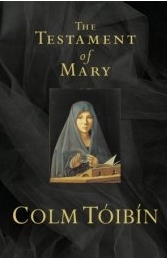 Title: The Explorer (Goodreads)
Title: The Explorer (Goodreads)
Author: James Smythe
Series: The Anomaly Quartet #1
Published: Harper Voyager, 2013
Pages: 260
Genres: Literary Fiction, Science Fiction
My Copy: Library Book
Buy: Amazon, Book Depository, Kindle (or visit your local Indie bookstore)
Cormac Easton has been selected to be the first journalist in space, sent to document the flight of Ishiguro into deep space. When the crew wakes up from hypersleep they discover their captain died in his allegedly fail-proof safety pod. One by one the rest of the crew died and Cormac was left alone; or so he thinks.
This is going to be difficult to review this book without giving spoilers; there are some big reveals within this novel that need to be left unmentioned. For those people that don’t read much science fiction don’t let the fact this is set in space put you off. This is literary sci-fi, the novel explores humanity. Also for those that think this sounds similar to my recent review of The Martian, they are completely different, while they both have a protagonist isolated in space that is pretty much the only thing they have in common.
I can’t really talk much about the plot, you just have to go out and read it; I want to talk a little about Cormac Easton. Whether you like him or not (I didn’t) there is something I found really interesting about this protagonist. James Smythe shows the reader just how to write an unreliable narrator. You spend most of this book trying to work out if Cormac is leaving things out because he is human and forgot or if it is on purpose, you also question everything he says, what is true and what is a lie. This works really well and I found it added to the tension and thrill of the novel.
Similar to The Martian I can’t help but comparing this to the movie Moon but when you get further into the book you can see some similarities to science fiction movies from the 80’s and 90’s (the one I’m thinking of might be too much of a spoiler). In the world of books, I’m reminded of classic science fiction; those books that have so much to say about humanity. I would probably compare Smythe to an author like Robert A. Heinlein; In fact I think I made a similar comparison to classic sci-fi in my review of The Machine.
James Smythe has been a great discovery for me, I love how he explores humanity in his novels. It might be weird but I think both The Machine and The Explorer may end up in my Best of 2013 list. I want to read more books by this author and have in fact started the sequel to this one (The Echo) already. I’m also looking forward to trying his first novel The Testimony and eagerly anticipating his currently untitled book that comes out mid-2014. Smythe seems to be a machine, two books released in 2013 and two being released in 2014, at this rate I’m never going to run out of his books to read.
I hope I didn’t reveal anything important in this novel; it is hard to write a review and say nothing. I also hope I’ve said enough to make people want to read The Explorer (and all of James Smythe’s novels). It is always great when you discover an author that writes the perfect books for your taste and I think I’ve found that here, I will try a few more novels but I feel confident. The Echo is the next book in this series, I believe there will be another two more as well but I felt like this worked well as a standalone novel. Highly recommend both The Explorer and The Machine and hope more people check out this great author.

 Title: NW (
Title: NW ( Title: The Bone People (
Title: The Bone People ( Title: Barracuda (
Title: Barracuda ( Title: The Testament of Mary (
Title: The Testament of Mary ( Title: The Machine (
Title: The Machine ( Title: Questions of Travel (
Title: Questions of Travel ( Title: The Amazing Adventures of Kavalier & Clay (
Title: The Amazing Adventures of Kavalier & Clay ( Title: A Constellation of Vital Phenomena (
Title: A Constellation of Vital Phenomena ( Title: TransAtlantic (
Title: TransAtlantic (